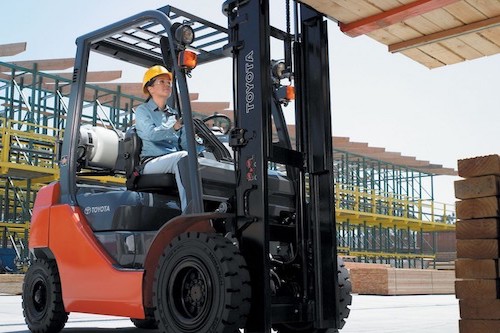
Certified Production Technician Program Details
Length: 144 hours
Credential Awarded: Certificate of Completion
Industry Certification: Manufacturing Skills Standards Council (MSSC)
Mode of Delivery: Classroom
Program Description
The purpose of the Certified Production Technician (CPT) ® certification program is to recognize through certification, individuals who demonstrate mastery of the core competencies of advanced manufacturing production at the front-line (entry-level to front-line supervisor) through successful completion of the certification assessments. The goal of the CPT certification program is to raise the level of performance of production technicians both to assist the individuals in finding higher-wage jobs and to help employers ensure their workforce increases the company’s productivity and competitiveness.
An individual can earn a “Certificate” if they pass one or more assessments. However, they must pass all four assessments to earn the full “CPT” certification.
The CPT program consists of four individual certificate assessments:
SAFETY
- Work in a Safe and Productive Manufacturing Workplace
- Perform safety and environmental inspections
- Perform emergency drills and participate in emergency teams
- Identify unsafe conditions and take corrective action
- Provide safety orientation for all employees
- Train personnel to use equipment safely
- Suggest processes and procedures that support safety of work environment
- Fulfill safety and health requirements for maintenance, installation, and repair
- Monitor safe equipment and operator performance
- Utilize effective, safety-enhancing workplace practices
QUALITY PRACTICES & MEASUREMENT
- Participate in periodic internal quality audit activities
- Check calibration of gages and other data collection equipment
- Suggest continuous improvements
- Inspect materials and product/process at all stages to ensure they meet specifications
- Document the results of quality tests
- Communicate quality problems.
- Take corrective actions to restore or maintain quality
- Record process outcomes and trends
- Identify fundamentals of blueprint reading
- Use common measurement systems and precision measurement tools
MANUFACTURING PROCESSES & PRODUCTION
- Identify customer needs
- Determine resources available for the production process
- Set up equipment for the production process
- Set team production goals
- Make job assignments
- Coordinate workflow with team members and other work groups
- Communicate production and material requirements and product specifications
- Perform and monitor the process to make the product
- Document product and process compliance with customer requirements
- Prepare final product for shipping or distribution
MAINTENANCE AWARENESS
- Perform preventive maintenance and routine repair
- Monitor indicators to ensure correct operations
- Perform all housekeeping to maintain production schedule
- Recognize potential maintenance issues with basic production systems, including knowledge of when to inform maintenance personnel
Prerequisite: High school diploma or equivalent. MSSC strongly recommends that individuals be at a 9th-grade math and 10th-grade reading level.
Tuition: $2,050 (includes textbooks and exam)
$640 of this includes textbook and exam fees that may be non-refundable.
Career Opportunities
Upon satisfactory completion of all four modules, participants will be prepared for a job as a production technician – entry level pathway into a career in advanced manufacturing.

Certified Logistics Technician Program Details
Length: 80 hours
Credential Awarded: Certificate of Completion
Industry Certification: Manufacturing Skills Standards Council (MSSC)
Mode of Delivery: Classroom
Program Description
The Manufacturing Skill Standards Council (MSSC) credentialing system leading to a Certified Logistics Technician (CLT) covers core competency areas for frontline material handling workers across all supply chain facilities: factories, warehouses, distribution centers and transporters. In this 80-hour course, topics will include global supply chain logistics life cycle, material handling equipment, safety, quality control, order processing, inventory control, etc. Individuals are assessed for two credentials: the foundational-level Certified Logistics Associate (CLA) certificate and mid-level Certified Logistics Technician (CLT) Certification. CLA is a prerequisite for CLT. Participants must pass both exams to receive the Certified Logistics Technician certification.
At the completion of this training, participants will be equipped with the following knowledge:
CERTIFIED LOGISTICS ASSOCIATE (CLA)
- Global supply chain logistics life cycle
- Logistics environment
- Material handling equipment
- Safety principles
- Safe material handling and equipment operation
- Quality control principles
- Workplace communications
- Teamwork and workplace behavior to solve problems
- Using computers
CERTIFIED LOGISTICS TECHNICIAN (CLT)
- Product receiving
- Product storage
- Order processing
- Packaging and shipment
- Inventory control
- Safe handling of hazmat materials
- Evaluation of transportation modes
- Dispatch and tracking
- Measurements and metric conversions
Prerequisite: High school diploma or equivalent. MSSC strongly recommends that individuals be at an 8th-grade math and 10th-grade reading level.
Tuition: $1,500 (includes textbooks and exam)
$280 of this includes textbook and exam fees that may be non-refundable.
Career Opportunities:
Upon satisfactory completion of the program, students are prepared to seek front-line material handling and supply chain logistics jobs in fulfillment centers, warehouses, distribution centers, and factories

Forklift Operator Program Details
Length: 25 hours
Credential Awarded: Certificate of Completion
Industry Certification: OSHA 10 & Forklift Safety
Mode of Delivery: Classroom
Program Description
The Forklift Training Program will prepare participants for employment in today’s warehouse & materials storage and moving industries. The expected outcome of this program is that each participant will obtain operator safety certifications and hands on experience operating the mobile power-propelled truck used to carry, push, pull, lift, stack or tier materials. This program also includes the General Industry OSHA Safety course. After completion of the course a trained operator will know how to perform the job properly and safely as demonstrated by a workplace evaluation.
Upon completion of this program, participants should be able to:
- Identify different types of mobile power – propel trucks or Powered Industrial Truck (Forklift).
- Understand the concepts of forklift operating rules and will be able to apply the safe operating process, and the difference between forklift and an automobile.
- Apply the general engineering principles related to mobile power-propelled trucks including the capacity and stability of the forklift, the process of refueling the forklift and charging/recharging the batteries.
- Differentiation of equipment types and their use.
- Focus on environmental hazards and their location.
- Identify and apply operator maintenance process.
- Identify the requirements for brakes and warning devices on a forklift.
- Operate the forklift in a smooth, safe manner on rough terrain.
- Calculate the lifting capacities of the forklifts.
- Explain OSHA regulations, principles of the center of gravity, the fulcrum, and the stability triangle.
Prerequisite: High school diploma or equivalent.
Tuition: Contact us to find out how to participate in this program.
Career Opportunities
Upon satisfactory completion of the program, students are prepared to seek employment in today’s warehouse & materials storage and moving industries.

Highway Safety & Flagger Program Details
Length: 24 hours
Credential Awarded: Certificate of Completion
Industry Certification: OSHA 10, ATSSA Flagger
Mode of Delivery: Classroom
Program Description
Highway flaggers direct and control traffic at construction sites or during temporary road closures or detours. A flagger must work on both ends of the construction project for the duration of the project to slow traffic and keep drivers and construction crews safe. This training program will provide an overview of careers in the highway construction industry as well as provide the safety protocols necessary to keep yourself and drivers safe.
Upon completion of this program, participants will have an understanding of highway safety, careers in the highway construction industry and highway safety training including:
- Apply standard flagger control references
- Identify proper flagging signals and procedures
- Learn standard flagger practices for various situations
- Slip, Trip and Fall Hazard Protection
- Fire Prevention, Protection and Emergency Egress Safety
- Using and Choosing PPE (Personal Protective Equipment)
- Causes and Prevention of MSD and RMD Injuries
- Workers’ Rights to Know the Chemical Makeup of Materials Found in Their Workplace
- Difference Between Chronic and Acute Health Ailments
- Hazards of Spray Finishing, Dipping/Coating, Combustible Liquids and Compressed Gases
- Dangers of Unguarded Equipment
Prerequisite: High school diploma or equivalent. Although not a requirement for the program or certification, employers may require a valid driver’s license or CDL for employment.
Tuition: Contact us to find out how to participate in this program.
Career Opportunities:
Upon satisfactory completion of the program, students are prepared to seek employment in a variety of fields including traffic safety and road closures, general highway maintenance, highway construction or contracting, or closures for utilities. ATSSA Flagger.
Georgia Department of Transportation requires that all flaggers doing any flagging on the State Highway System must have received training and a certificate upon completion of the training.